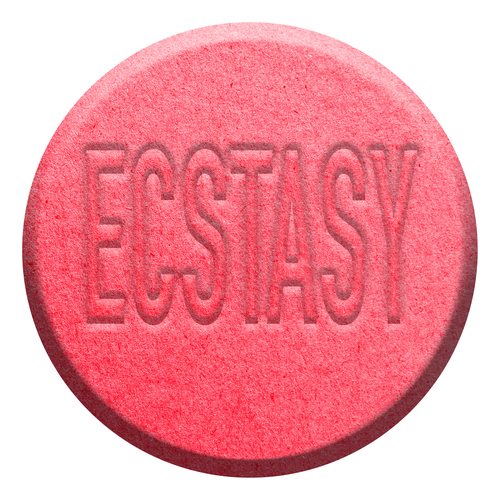Ecstasy overdose is preventable now that it is a public health concern. Long term effects of ecstasy use on the brain can include serotonin related disorders, short term effects may be dangerous as well. Find out what complications may arise from an overdose and how to mitigate the risks.
How Overdose Happens
Serotonin is greatly affected by ecstasy use which impacts a person’s body in the following ways:
- Mood disorder
- Sleep issues
- Appetite changes
Euphoric feelings are triggered by ecstasy use as well as a desire for physical contact and intensified emotions. Ecstasy users may lose touch with reality and go for another dose. Overdose is therefore the occasional result of seeking further effects of the drug. Mixing the drug with alcohol can have serious side effects but is frequently used alongside other things including marijuana, cocaine or methamphetamine.
Overdose
Typical doses of ecstasy can range between 10-150 mg. Some people may take up to 700 mg of ecstasy or binge all night at a rave or dance party. Complications may arise as a result of ecstasy use which can include the following:
- Serotonin syndrome
- Stimulant psychosis
- Hypertensive crisis
- Agitation or paranoia
- Cognitive or memory impairment
- Disorientation and confusion
- Hallucinations and delusions
- Disorganized thinking
Physiological symptoms can occur as well including:
- Cardiac dysfunction
- Heart failure
- Coma
- Convulsions
- Damage to heart
- Destruction of blood vessels
- Stroke
- Hyperactivity
- Hyper reflexia
- Loss of consciousness
- Muscle rigidity
- Severe chest pain
More than one third of ecstasy-related emergency room visits were made in the South of United States recently with over 22,000 visits made for ecstasy overdose. The number of visits to the emergency room made by people 20 years of age or younger is twice the number of those 21 years of age or older.
Overdose Prognosis
Research results do not provide much good news for long term prognosis or chronic ecstasy abuse. Compared with past users, signs of recovery in memory were less apparent and clinically significant levels of depression, impulsiveness and sleep disturbances continued even after not using ecstasy.
It is possible for individuals to overdose on ecstasy for many reasons. Hyperthermia is a dangerously high increase in body temperature. Hyperthermic reactions result from physical exertion (dancing, etc) in an overheated environment without drinking enough fluids or taking breaks. This can cause damage to the liver, heart failure or even death. This is preventable by getting enough fluids if using ecstasy. Some people may drink too much water and experience hyponatremia. The sodium levels in a person’s blood become diluted to critically low levels and seemingly affects women more than men. Juices and electrolyte-replenishing drinks can be more beneficial than water in these instances to avoid overdose.
The Villa provides resources for individuals who are struggling with addiction or drug dependency. If you use ecstasy or another drug and have a hard time stopping on your own, give us a call. Let us help you find a way to safely stop using drugs or alcohol.

